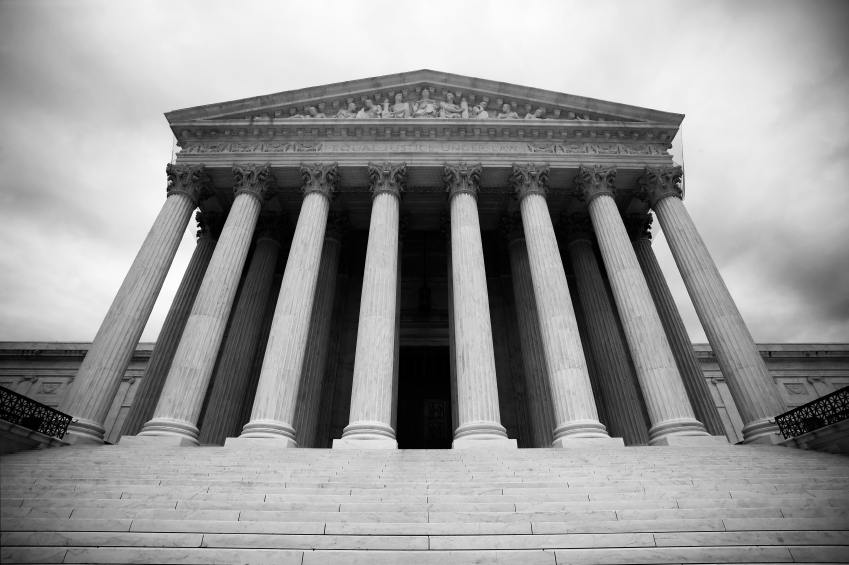
About This Blog
Presented by Hodgson Russ, the Whistleblower Blog is written by a team of lawyers experienced in successfully guiding both whistleblowers and companies accused by whistleblowers of wrongdoing through the False Claims Act process.
Stay Connected
United States Supreme Court to Determine the Viability of the “Implied Certification” Theory of Legal Falsity under the False Claims Act
 In the coming months, the Supreme Court will render a landmark decision and determine the viability of the “implied certification” theory of legal falsity under the False Claims Act. The Supreme Court recently heard oral argument in this landmark case where the relators claim the defendant, Universal Health Services, presented false claims for payment under the “implied certification” theory. The case is before the Supreme Court on appeal from the First Circuit’s decision in United States ex rel. Escobar v. Universal Health Services, 780 F.3d 504 (1st Cir. 2015).
In the coming months, the Supreme Court will render a landmark decision and determine the viability of the “implied certification” theory of legal falsity under the False Claims Act. The Supreme Court recently heard oral argument in this landmark case where the relators claim the defendant, Universal Health Services, presented false claims for payment under the “implied certification” theory. The case is before the Supreme Court on appeal from the First Circuit’s decision in United States ex rel. Escobar v. Universal Health Services, 780 F.3d 504 (1st Cir. 2015).
In general, courts have developed two categories of false claims under the False Claims Act – factually false claims and legally false claims. Factually false claims are those where the claimant misrepresents the goods or services it provided when submitting a claim for payment to the government. Legally false claims are those where the claimant falsely certifies compliance with a condition of payment that can be found within relevant statutes, regulations, or contracts. Courts have further divided the legally false claims category into “express” and “implied” certification. The express false certification theory is triggered when a claimant submits a claim falsely certifying that it is in compliance with the relevant statutes, regulations, or contracts that are conditions of payment. The implied false certification theory is triggered when a claimant submits a claim for payment without disclosing that it is in violation of the relevant conditions of payment. Thus, the claimant is implicitly certifying compliance with the conditions of payment when it submits its claim for reimbursement to the government. See generally United States ex rel. Wilkins v. United Health Group, Inc., 659 F.3d 295, 305-06 (3rd Cir. 2011) (discussing the categories of false claims under the FCA).
In this case, the relators filed suit in the United States District Court for the District of Massachusetts following the death of their daughter who sought mental health services at Arbour Counseling Services, which is owned and operated by the defendant. An investigation revealed that their daughter had been treated by unsupervised and unlicensed clinical staff in violation of state regulations. Thus, the relators allege in their complaint that the claims for payment submitted by the defendant for treatment of their daughter were false within the meaning of the False Claims Act because the claims misrepresented compliance with required conditions of payment – i.e., proper supervision and proper licensing of the treating mental health providers as required by the relevant regulations. Despite these confirmed failures of the defendant, the District Court dismissed the relators’ complaint in its entirety for failure to state a claim. The First Circuit Court of Appeals reversed that decision, however, and concluded that the relators’ allegations were sufficient to survive a motion to dismiss. The United States Supreme Court granted the petition for a writ of certiorari and heard oral argument on April 19, 2016.
Amicus briefs were filed by interested parties on both sides of the issue. For instance, the American Health Care Association and the National Center for Assisted Living filed a brief arguing that the Court should reject the implied certification theory or impose strict limits on its use. The AARP, however, filed a brief in support of the relators arguing that the implied certification theory plays a vital law enforcement function in protecting vulnerable people like nursing home residents and helps to protect people from substandard care.
The Supreme Court’s decision is expected this summer. Since many False Claims Act cases are filed under the implied certification theory of legal falsity, the Court’s decision regarding its viability could have a profound impact on False Claims Act litigation going forward.





